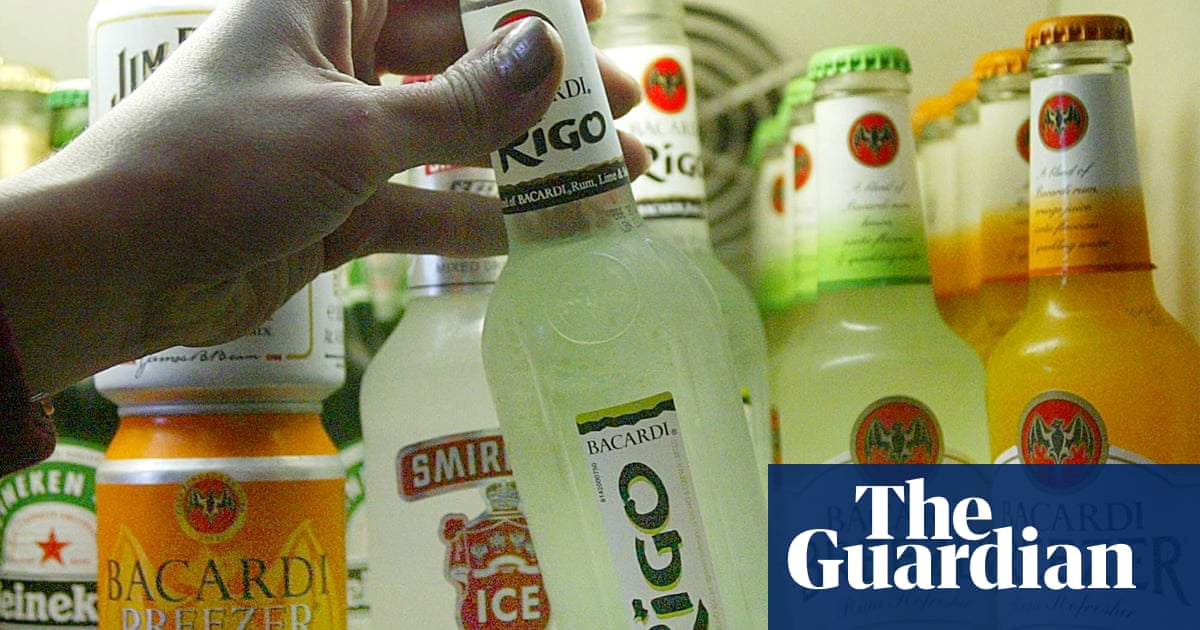
Two ubiquitous consumer items of the 1990s – alcopops and CDs – will no longer count towards the monthly update of Britain’s cost of living after the latest shake-up of the shopping basket used to measure price changes.
In a sign it is no longer fashionable to order a fruit drink laced with booze in a pub and that the age of the compact disc is over, the Office for National Statistics said both products had fallen foul of its annual audit of the UK’s spending habits.
Non-chart CDs and alcopops – along with digital compact cameras – were the most high-profile casualties of the latest rejigging of the ONS inflation basket, which contains everything from cucumbers and TV licences to compost and tissues, and is used to measure the annual inflation rate.
They have made way for new additions that reflect the environmentally aware, health conscious and property-obsessed state of modern Britain: e-bikes, frozen berries for making smoothies, and home security devices.
The inflation basket is updated once a year by the ONS to take account of the changing tastes and habits of UK consumers and to ensure the official yardstick of the cost of living is as accurate as possible.
How the cost of living is measured has taken on added significance over the past year following the rise in the annual inflation rate to a 40-year high of 11.1% – more than five times the government’s 2% target – last autumn.
Although inflation has since fallen to 10.1%, price increases have been especially marked for food and fuel, which has had a disproportionate impact on the poor. Less well-off households spend a higher proportion of their budgets on these staple items than better-off households.
The inflation basket – first introduced in 1947 – now contains almost 750 goods and services and is designed to be representative of current spending patterns. Most items remain in the list from year to year, but the 26 items added and the 16 removed for 2023 are supposed to reflect the nation’s changing tastes.
Last year, the traditional men’s suit – until then ever-present since 1947 – was a casualty of the working from home trend that emerged as a result of health precautions taken during the pandemic. Five years ago, gym leggings and quiche came in while bottled lager sold in nightclubs and pork pies were removed. In 2013, ebooks and blueberries were in, filled rolls sold in pubs and round lettuces were out.
Alcopops, all the rage in the 1990s, were first introduced to the basket in 1997 while CDs were seen as the future of music when they made their debut on the list in 1987, the year spending on the new format overtook vinyl sales for the first time. But the rise of streaming and the second coming of vinyl have meant sales of CDs have been in steady decline in recent years, with the ONS now saying they would only include sales of Top 40 discs in the basket.
Other changes made this year are the inclusion of infants’ dresses and green beans, a broadening of the postage charges category to reflect the growth in parcel courier services, and the replacement of tampons by sanitary towels.
The ONS said the influence of Covid-19 on the basket, which had been so obvious over the last couple of years, had faded from shopping habits in 2023. This year’s changes pointed to the evolving choices of consumers and the rise of new technology.
Mike Hardie, the ONS deputy director of prices transformation, said: “The impact of mobile phone technology continues to resonate with the removal of CDs and digital cameras from our basket, reflecting how most of us listen to music and take pictures straight from our phones these days.
“With many people looking to reduce their impact on the environment, we have also introduced e-bikes, whose popularity has risen significantly in recent years.”
The ONS said it was changing the way it collected data on rail fares in order to better understand the prices being paid by travellers by train.












